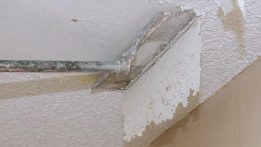 So, you’re thinking about getting a home warranty but want to know whether it is worth the investment. Maybe you’ve asked around to your friends or family, and they seem to know what they are talking about. You know you need to do some more research, but it seems daunting. Well, no need to put it off any longer; we have done the research so that you don’t have to. From the basics of what it entails to who benefits the most from purchasing it, this article provides an explanation of how home warranties work and why you might need one.
So, you’re thinking about getting a home warranty but want to know whether it is worth the investment. Maybe you’ve asked around to your friends or family, and they seem to know what they are talking about. You know you need to do some more research, but it seems daunting. Well, no need to put it off any longer; we have done the research so that you don’t have to. From the basics of what it entails to who benefits the most from purchasing it, this article provides an explanation of how home warranties work and why you might need one.
What is a home warranty?
Before getting into the nitty gritty, let’s start with the basics. It is important to know that home warranties cover many items but never encompass everything. Typically, they cover major appliances that include but are not limited to plumbing, electrical, heating, and air conditioning systems. They do not usually cover doors, windows, or other structural features. Structural features are usually covered by either a builder’s warranty or a manufacturer’s warranty, depending on whether the house is new construction or not. While homeowners insurance covers fire damage, theft, and other casualties, a home warranty covers the natural wear and tear of systems and items. This means that a system must be in decent condition when the warranty is purchased and can be replaced when the system begins to fail or fall into poor condition. While these facts are mostly universal, discussing the extent of coverage with your home warranty company is crucial to knowing what will be covered by your exact plan and for how long the plan will extend.
Who needs to purchase one?
Both new homeowners and those who have owned their home for years can benefit from having the security of a home warranty. For those looking to purchase, though, real estate agents or the seller will sometimes purchase and offer a warranty as a selling point or gift to you, or sometimes they will purchase it for their own protection to cover things during the sale of the property. Let the agent or seller bring up whether a warranty is included instead of asking about it yourself. However, it is vital that you voice your concerns and questions while you are with the seller or real estate agent. This is so they can guide your decision and give you a less biased opinion than that of your warranty company. Another factor to consider is whether you own or are buying a home with older or newer appliances. If you have recently been in or are currently in the process of closing on a newly built home, there is typically no need to purchase a home warranty. There is usually a builder’s warranty and manufacturer’s warranty included with the new construction and installation of new appliances. Often, the manufacturer’s warranty lasts longer than a few years. Be certain that you talk with any and everyone, from your realtor to an agent at the home warranty company of your choice.
What is the price for your peace of mind?
Home warranty prices can range widely depending on the amount of coverage you want. Basic coverage is in the range of $300 to $600 a year. Enhanced coverage is an additional $100 to $500 depending on what you would like include in your plan. The positives of purchasing sufficient coverage are simple. Without it, the expense of replacing major appliances can add up quickly if your luck and the general endurance of your systems are not on your side. A quick call to your local repairman and your warranty company will help you schedule the replacement of your appliance. If you have recently purchased or are about to purchase a previously owned home, it is a smart idea to protect systems and appliances nearing the end of their lives by being proactive and purchasing a home warranty.
Final Check before Deciding:
Did you:
- Confirm you need a home warranty.
- Look closely at the details in the contract to ensure:
- Inclusion of all of the appliances you want covered
- The caps on benefits work for you.
- Weigh the options between paying an annual premium for a warranty and taking the time to build an emergency fund and risk paying out of pocket.
- Check reviews and decide on a home warranty company.
- Have the company you’ve decided on do a thorough inspection of systems such as your heating and air conditioning, lighting, plumbing, electrical outlets and wiring, etc.
Don’t forget to mark off each section in the checklist above. The important part of this is that it should be made to fit your needs and ease your concerns. Once you have made your decision, you can rest soundly in the knowledge that you have covered every appliance or system needed and made the right decision on your company and your coverage plan. ![]()
Hailey Marston
Home & Yard Magazine




